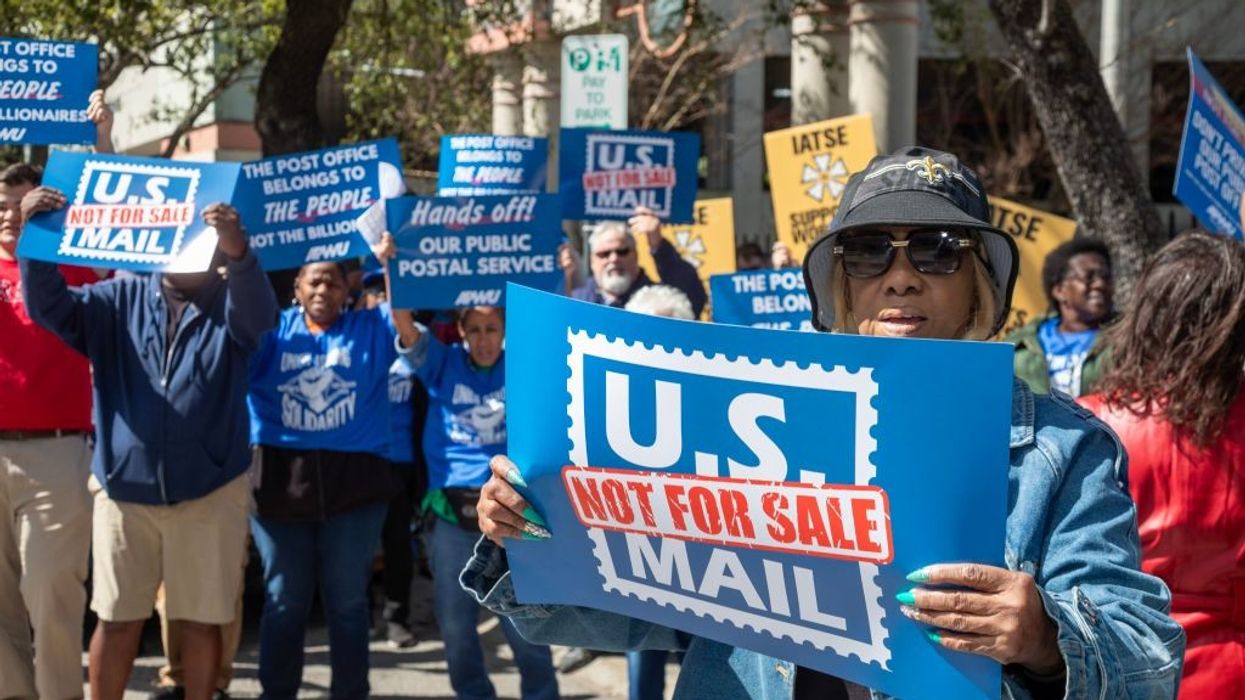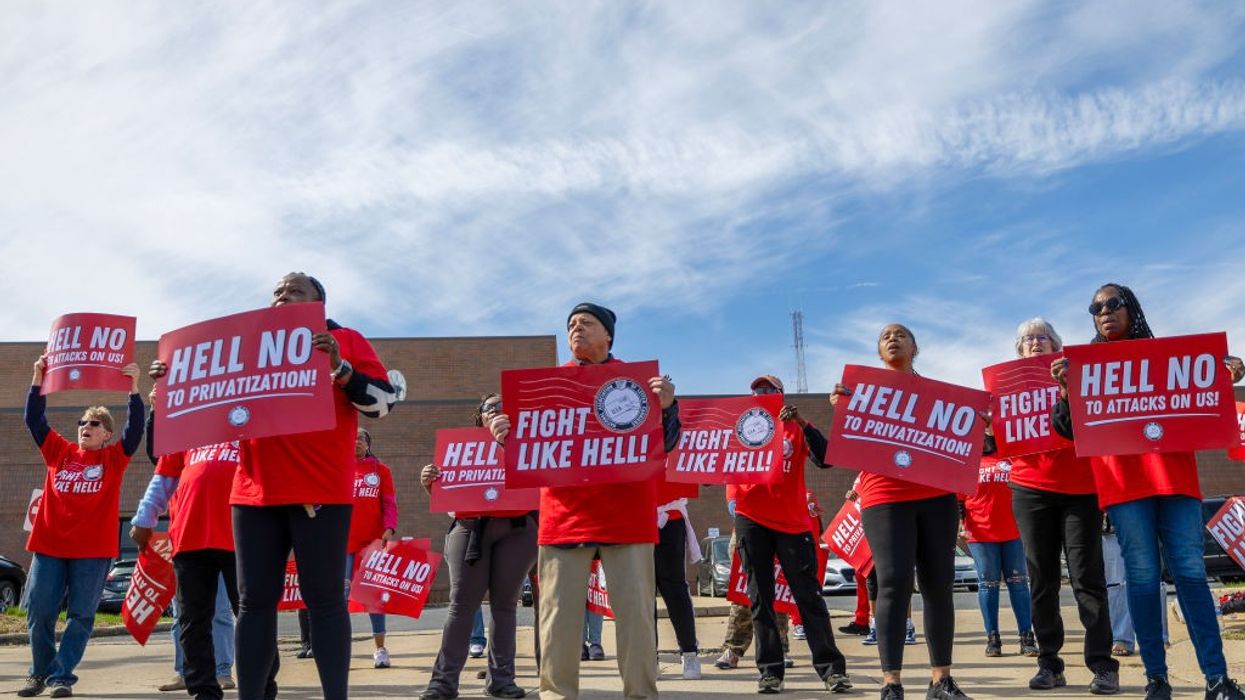'Aggressive Step' Toward Privatization as Trump Picks FedEx Board Member to Lead USPS
"It is a blatant conflict of interest and an attempt by President Trump to install a handpicked loyalist who he believes will put his interests over what may be best for the Postal Service and the American people."
President Donald Trump and the U.S. Postal Service's leadership have reportedly agreed to appoint a FedEx board member to succeed Louis DeJoy as postmaster general, heightening concerns that the administration is pushing the independent mail agency toward privatization.
The Washington Post reported late Tuesday that Trump and the USPS Board of Governors are expected to name former Waste Management CEO David Steiner to lead the Postal Service. Steiner is currently the lead independent director at FedEx, a Postal Service competitor.
Brian Renfroe, president of the National Association of Letter Carriers—a union representing nearly 300,000 active and retired letter carriers—called the decision to place Steiner at the head of the USPS "an aggressive step toward handing America's mail system over to corporate interests."
"Private shippers have been waiting to get USPS out of parcel delivery for years," said Renfroe. "Steiner's selection is an open invitation to do just that. This isn't just bad policy—it's a direct assault on the workers who keep the mail moving and the public connected. The damage will hit rural communities hardest, where the Postal Service isn't just a convenience—it's a lifeline. And make no mistake: If this appointment stands, it threatens 7.9 million jobs tied to the postal industry and service to over 300 million Americans."
"The board has the responsibility to do what is best for USPS," he added. "This decision is not only a failure in that responsibility but shows open contempt for the work of America's letter carriers and the public good."
"The Trump administration has been relentless in its attempts to privatize America's most trusted institution, both outwardly and behind the scenes."
The USPS Board of Governors—which is currently comprised of two Democrats, two Republicans, and an independent—is ultimately responsible for appointing the head of the mail service, who cannot be directly fired by the president.
The Post reported Tuesday that postal governors, who are appointed by the president and confirmed by the Senate, submitted three postmaster general finalists to the White House in recent days, including Steiner.
"Trump has the power to immediately reshape the [postal board] with five appointments: The board has four vacancies, plus a seat that is occupied temporarily," the Post noted. "Trump announced plans to nominate Anthony Lomangino, a GOP financier, to one of those roles."
Earlier this year, Trump considered but soon dropped a plan to fire every member of the postal board and bring the USPS under the direct control of his administration. The president has also spoken openly about privatizing the mail service, saying in the wake of his 2024 election win that "it's an idea that a lot of people have liked for a long time."
Rep. Gerry Connolly (D-Va.), the top Democrat on the House Oversight Committee, said in a statement Tuesday that "the Trump administration has been relentless in its attempts to privatize America's most trusted institution, both outwardly and behind the scenes."
"If these reports are true, it is a blatant conflict of interest and an attempt by President Trump to install a handpicked loyalist who he believes will put his interests over what may be best for the Postal Service and the American people," Connolly said of Steiner's selection. "The American people deserve a postmaster general who will stand up for an independent, fair, and accessible Postal Service and who will work with Congress to ensure Americans in all communities nationwide can continue to rely on this public service to deliver mail, medications, ballots, and more without prejudice."


